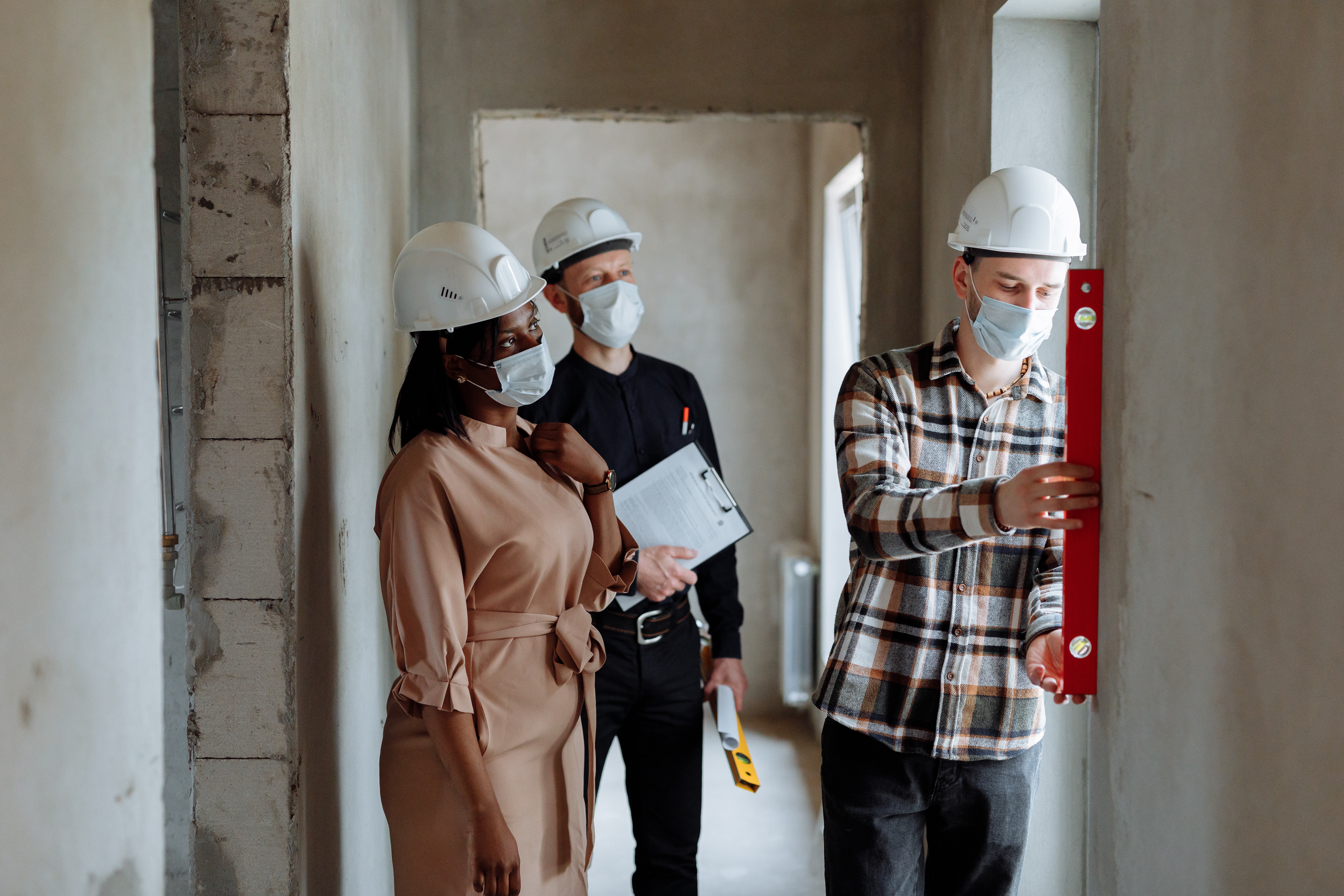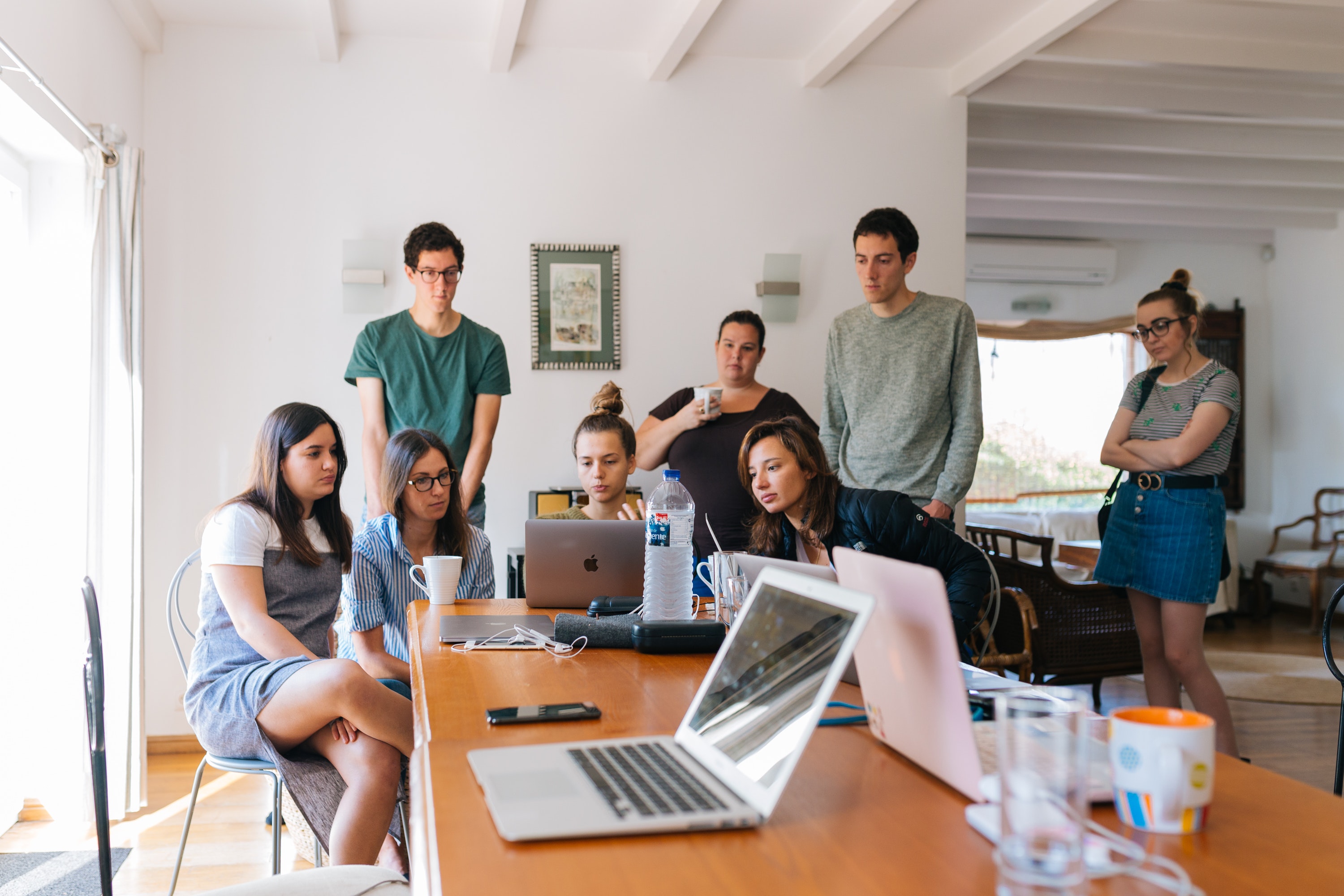
Choosing to be a temp? What you need to know
Temporary, contract or interim job opportunities are booming and play a vital role in Australia’s economy. Many candidates prefer not to work in a fixed way or use interim roles to move into...
Read moreFY20 has been a difficult year for most businesses – with elections (state and Federal), rising unemployment, the drought, record national bushfires and, of course, COVID-19. It’s been a medical, a financial, two natural disasters and a leadership crisis, all in one.
Over and above all of these, the COVID-19 pandemic is literally changing the way Australians work. In our sector from Site Managers to Engineers, Project Managers to MEP specialists, it seems increasingly likely that the workplace may never be the same again.
While this offers its own challenges, there are also a number of opportunities for both employees and employers. Remote working, shifts, different start/finishing times and social distancing are becoming the new normal for most employees, as company priorities shift. Many organisations are rethinking their staffing, office space requirements and business models to adapt to the new normal workplace.

Here are just some of the ways we can expect to see our workplaces continue to change.
Over the years, Australian workplaces have increasingly been experimenting with flexible work arrangements that also reflect the personal needs of employees, such as childcare. Across Australia, there will undoubtedly be fewer people in the office. Especially now, employees have tried working from home and often found this preferable and productive, and certain groups may seek out employers that offer the new normal workplace model.
There will be a number of employee and employer benefits to this continued model, even if organisations may have little choice but to limit the numbers of workers on-site going forward. Staggered shifts, enforced flexi-time, and 24/7 operations may become the norm, along with working remotely or via shared ‘hot-desking’ offices. To manage this cultural shift in the new normal workplace, especially onsite and within an employee’s home, new management, HR and OH&S policies and practices will be important to manage and resolve remote team issues.
This is hardly a surprise, as technology has been changing the workplace for many years and will continue to do so. However, the speed at which we have had to accept and adopt change has meant many businesses in our sector (including CGC Recruitment) have changed their operating model and went agile in days or weeks, not months or years, largely thanks to readily-available technology.
Yes, there are security challenges, communications nuances, and frustrating video calls that lag, but the bottom line is that staff are operational in entirely new and unusual ways/circumstances. Even those companies that didn’t have the latest technologies had to quickly pivot, adapt, and make do with their existing systems in place. It’s likely that technology will become increasing integrated into the new normal workplace setup, as well as our professional and personal devices.
While some companies have found this relatively easy, of course others have found it more difficult or complex and are reduced to playing catch-up. This is a challenge for many CIOs and Operations Managers to address, as companies continuously improve their technology to better support their remote/off site workers.
In a new survey from Asana, the Anatomy of Work, it was suggested that 98 percent of Australians were using a work management platform, messaging app or video conferencing, to enable them to continue working during the lockdown and restrictions. With the improved technology discussed above, and more people working out of the office, turning to virtual collaboration tools to run meetings, share information securely from one central place, and work together remotely will become the new normal.
Tools like Trello, Zoom, and Microsoft Teams have become essential during the pandemic for teams to operate remotely. Although it’s 100% possible to make remote team collaboration work, it would be unrealistic to say it’ll be easy for everyone, as virtual team management comes with real challenges. Each company will approach this differently, finding new ways to collaborate via the latest communications solutions.
Like many of these topics, prioritising well-being and your people is theoretically not new. However, most companies shouldn’t have to use or tested this approach company-wide before. These new operating models are forcing businesses to rapidly change and while that might be good for some people, others may struggle. Worker well-being may also be increasingly difficult to pick up on as staff work more remotely and don’t meet as often face to face.
Whether you want to know how to manage a remote workforce, or your current staff is transitioning to a flexible work situation, here are some of the most common people problems/considerations:
All we really know is that change is here to stay, to a lesser or greater degree, for all businesses big and small. This will hugely impact how we recruit, retain, manage, and motivate teams.
As recently reported in the AFR, even global giants like Worley Parsons are having to adapt, citing the current economic conditions as a catalyst for major change. The company announced in May that 46,000 of their people won’t be going back to “the office”, in favour of move flexible work arrangements. Worley is even developing its own technologies to help support staff as it implements a new working/business model globally.
At CGC Recruitment, our team of experienced consultants specialise in all major infrastructure, engineering, and construction sectors. We help clients throughout Australia deliver their projects by attracting the best candidates and talent.
To best support our industry and share our recruitment insights, we have created CGC In Focus. This is our response to the unprecedented business environment, demonstrating where we see recruitment challenges and opportunities for both our clients and candidates to achieve positive personal, professional, and commercial outcomes. To register for a copy of CGC in Focus, click here.
Alternatively, to discuss a recruitment matter, connect with CGC today and one of our experienced consultants will be happy to help.

Temporary, contract or interim job opportunities are booming and play a vital role in Australia’s economy. Many candidates prefer not to work in a fixed way or use interim roles to move into...
Read moreThis month’s round up at CGC Recruitment focuses on a number of field activities taking place within the team.
Read more
The future of work is flexibility - A challenge for construction The COVID pandemic marks the line in the sand that changed everything in terms of people’s workplace expectations. And the shift...
Read more
New year, new job - How to stand out from the crowd The new year is approaching - bringing in new possibilities and perhaps a new beginning! Right now, you might be considering a change in the...
Read more
The post-COVID world is creating a strong demand for architects and interior designers to deliver improved building ventilation and flexible work spaces. They play a crucial role in getting people...
Read more
The future of work with hybrid workplaces Research has found three-quarters of organisations expect 30% of their employees to work remotely, with more than a quarter expecting over 70% of staff to...
Read more
Many Australian organisations, particularly those tied to infrastructure projects, are struggling to find skilled workers. This is partly due to skill shortages, reduced mobility due to border...
Read more
From major infrastructure to smaller local projects, there’s currently an abundance of work in the engineering sector - covering both multidisciplinary and niche firms.
Read more
Longer days, a warm breeze, the donning of shorts and t-shirts and the closing out of the NRL season can only mean one thing…summer is coming! And there’s no better way to relax than perusing CGC’s...
Read more© 2022 CGC Recruitment. All rights reserved.
Terms & Conditions Privacy Policy Contact